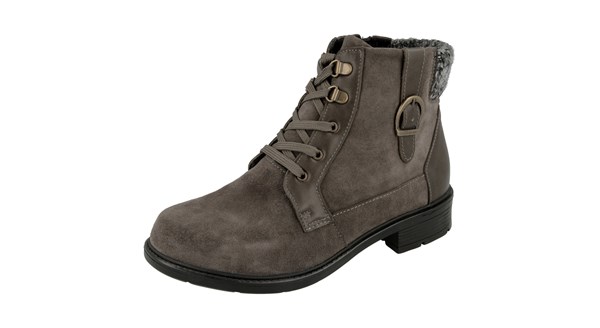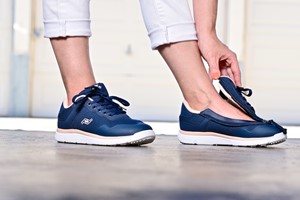Winter-Proofing Your Feet
It’s that time of the year again when we all look at our closets and ruminate if the flowing dresses and thin cardigans ought to be replaced by woollen jumpers and thermals…However, not all of us consider the importance of our shoe rack with the seasonal change!
Our feet are some of the hardest working areas of the body, capable of taking our weight in a small surface area while keeping us mobile. It’s easy enough to overlook it but as with other parts of us, it does need attention.
With the change in weather and temperature, open footwear such as sandals and flip flops should be put aside or thrown away and sturdier, closed shoes made more prominent in our wardrobe. We might have that comfortable pair of boots that we use year in, year out but it’s time to see if that is enough to ensure our feet stay protected this cold season.
So what should you do? Here’s some handy tips to check if your shoes are ready for winter:
- Check the soles. Are the treads still prominent or has too much use smoothed them out, thereby making it easy for you to slip in icy weather? It’s good advice to have them professionally repaired/re-soled if that’s the case. Are there any areas where the sole is coming apart from the upper – that is where the rain water is going to get in. In this case, a new pair would be more appropriate.
- Make sure the fastenings (laces, strap fastenings, zips) are in good condition. They are a major support for the top of the foot and ensure your feet are kept snug in your shoes.
- Waterproof your shoes. As with the variable (British) weather, rain and snow is a given. Water is a major enemy of leather – and its variants suede and nubuck – and too much moisture makes them degrade further. No one wants wet feet! A good waterproofing spray is available in most shoe stores and there are different ones for whatever material your shoes made of. Make sure to spray them regularly but in a well-ventilated area.
- Have you developed any foot problems such as bunions, plantar fasciitis, or hammer toes? Then it might be time to go to a dedicated specialist footwear shop where they can advise you whether the Old Faithful is still the right pair of shoes for you. Remember to take any foot orthoses with you if you have had them prescribed.
It also helps with insulation for your feet to wear good quality merino wool based socks, which provide warmth but are made of natural fibres to ensure that enough air circulates to prevent smelly feet. Toes are quite susceptible to the cold, and if not well-protected can get numb and then painful.
Keeping your feet happy and healthy means you can stay on the dance floor longer during your Christmas parties!
Blog home >
Recent Posts
-
Friendly Shoes join the HFG-a warm welcome to you.
Introducing Friendly Shoes, the UK’s first fully adaptive footwear brand
Designed by an occupational therapist, …
read more
-
Cosyfeet achieves platinum in US and UK
Cosyfeet Achieves Platinum in US and UK
Cosyfeet, the Somerset-based retailer of premium footwear for people with …
read more
-
Cosyfeet wins Platinum with Feefo
Cosyfeet Wins Platinum with Feefo
Cosyfeet is the proud recipient of a Feefo Platinum Trusted Service award for 2022 …
read more




